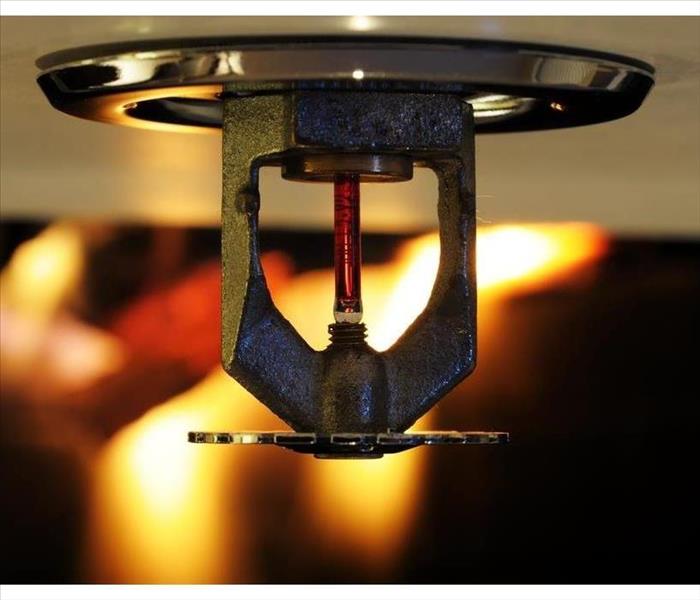Can a Fire Sprinkler Activate Accidentally?
8/5/2020 (Permalink)
 Keep your fire sprinklers well-maintained to reduce the risk of flooding on your commercial property.
Keep your fire sprinklers well-maintained to reduce the risk of flooding on your commercial property.
Every business owner in Doylestown, PA, should invest in fire sprinklers for their commercial property. When sprinklers work as designed, they can significantly reduce the damage created by a fire. Because sprinklers emit much less water than a fire department hose, they also reduce the chance of significant flooding in the building.
Accidental Activation of Sprinklers
Sprinklers are rarely triggered unless a fire is nearby, but there are a few instances in which a sprinkler can be activated by accident.
Accidental overheating - Sprinklers become activated by high heat, so you don't need to worry about burning your pizza in the oven. However, if sprinklers are located near an area of high heat, such as close to heaters or skylights, they could potentially be set off. To eliminate possible flooding caused by a sprinkler that is located in a high-heat area, you can purchase high-temperature-rated sprinklers. These will only be activated at temperatures over 200 degrees.
Corrosion to parts of the sprinkler - If a sprinkler is very old, it could become corroded. This can weaken parts of the system that release water. It's important to conduct regular inspection and testing of your sprinklers to avoid potential water damage.
Damage to the mechanism - Improper installation can potentially damage the mechanism of the sprinkler, which can cause parts of the system to loosen over time. Always make sure that sprinklers are installed by a professional with proper training.
In addition to conducting a routine inspection of your sprinklers, you should also have them inspected annually by a professional. This will greatly reduce the risk of accidental activation. It's also important to note that if water does damage your property, you must contact a water damage repair professional as soon as possible. Experts are trained to safely and effectively remove the water and dry the structures in your building.
Keep your fire sprinklers well-maintained to reduce the risk of flooding on your commercial property.





 24/7 Emergency Service
24/7 Emergency Service